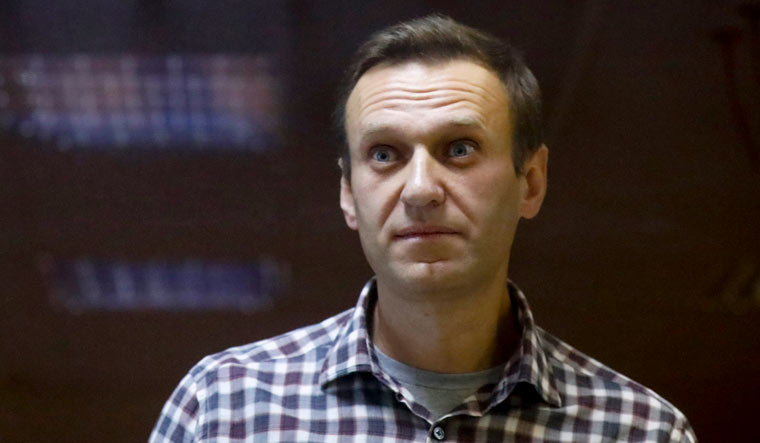Activists for imprisoned Russian opposition leader Alexei Navalny on Sunday called for massive protests in the heart of Moscow and St Petersburg as Navalny's health reportedly is deteriorating severely while on hunger strike.
Leonid Volkov, a top strategist for Navalny, said the demonstrations were called on short notice for Wednesday because his life hangs in the balance. "We don't know how long he can hold on...But it is clear we do not have time," he said.
The 44-year-old Navalny, President Vladimir Putin's most visible and persistent critic, started a hunger strike more than three weeks ago to protest prison authorities' refusal to allow him to be seen by a private doctor for diagnosis of severe back pain and loss of feeling in his legs; the Russian penitentiary service says he is getting adequate care.
On Saturday, a doctor said test results that he received from Navalny's family showed sharply elevated levels of potassium, which could lead to cardiac arrest, and signs of kidney failure.
Our patient could die at any moment, said the doctor, Yaroslav Ashikhmin.
There was no immediate comment from police or government officials about the call for protests, but the response is likely to be harsh. Police arrested more than 10,000 people during nationwide protests in January calling for Navalny to be freed.
The Wednesday protests have been called for symbolically resonant locations Manezh Square in Moscow, just outside the Kremlin walls, and St Petersburg's sprawling Palace Square.
Navalny was arrested on January 17 when he returned to Russia from Germany, where he had spent five months recovering from Soviet nerve-agent poisoning that he blames on the Kremlin. Russian officials have denied any involvement and even questioned whether Navalny was poisoned, which was confirmed by several European laboratories.
Navalny was ordered to serve 2 1/2 years in prison on the grounds that his long recovery in Germany violated a suspended sentence he had been given for a fraud conviction in a case that Navalny says was politically motivated.





